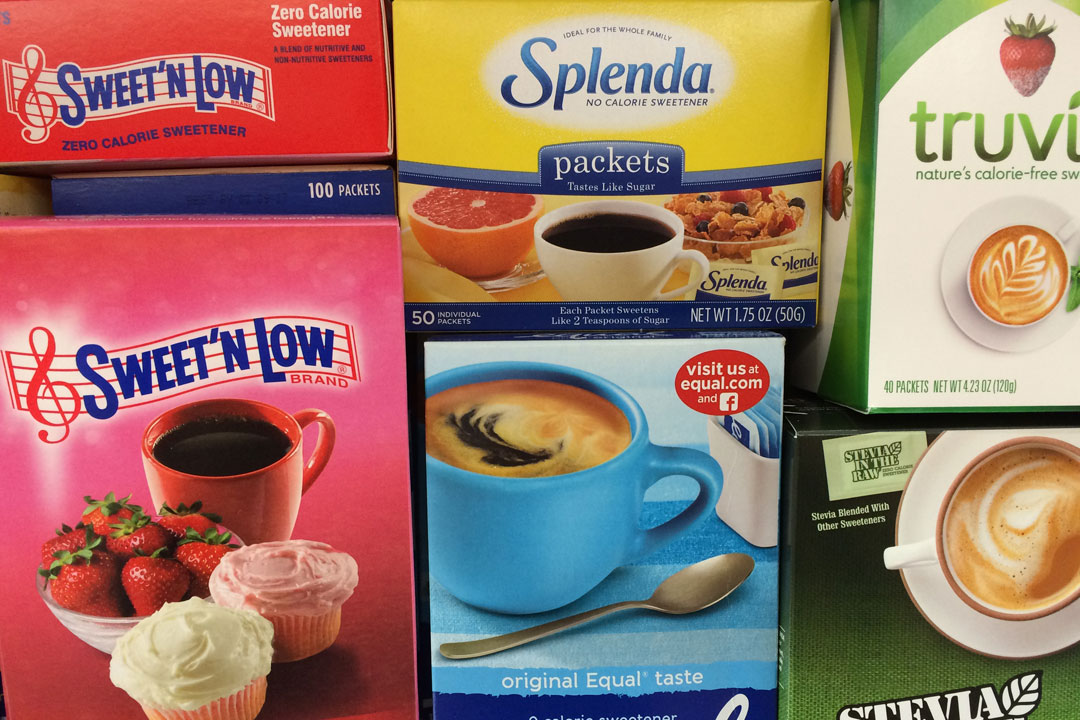
Reducing Food Waste in Foodservice
October 16, 2018 by Doreen Garelick, Dietetic Intern
Our intern Doreen attended a food waste summit for restaurants and compiled these tips to help food service operators redirect…
Nutrition 101
November 4, 2015

We have spoken a little bit about artificial sweeteners in the past, but wanted revisit this topic since they are once again in the news. Pepsi recently switched from using aspartame (Equal and Nutrasweet) to sucralose (Splenda) in a few of their beverage formulations as more consumers are becoming concerned about the safety of aspartame, mainly its link to cancer. Artificial sweeteners are used in various food products and beverages as a means to reduce extra calories in the diet, however, several recent studies are finding that these non-caloric sweeteners may pose other health risks related to glucose intolerance and your gut microbiota.
For example, one study found that sucralose consumption led to increased insulin and glucose levels in obese participants who did not normally consume non-nutritive sweeteners. Another study looked at consumption of various artificial sweeteners including saccharin, sucralose and aspartame and found similar results regarding glucose intolerance, but also found that these sweeteners may alter the gut microbiome. The study observed healthy participants who consumed saccharin daily for one week and found that the majority of the participants developed poorer glycemic responses and had altered intestinal microbiota.
These same researchers did other studies with a larger cohort and concluded that regular consumption of non-nutritive sweeteners was “positively correlated with intestinal microbial changes and multiple clinical parameters, including glucose intolerance and weight.” Dietary habits play a major role in gut composition and function, and the current research shows “that dietary sugar alternatives meant to stave off the risk of obesity and diabetes may actually increase disease risk due to microbial alterations.”
While these artificial sweeteners may help individuals with calorie control and weight loss in the short term, more and more findings suggest these sweeteners should be used with caution. Artificially sweetened drinks should not be a replacement for water, but if you find yourself wanting something a little sweet here are some simple suggestions for healthier alternatives to help quell your sweet beverage cravings:

October 16, 2018 by Doreen Garelick, Dietetic Intern
Our intern Doreen attended a food waste summit for restaurants and compiled these tips to help food service operators redirect food waste from landfills.
Nutrition 101

Nutrition 101
September 26, 2018 by Doreen Garelick, Dietetic Intern
Ever notice headlines about rapid weightloss? Dietetic Intern Doreen Garelick looks deeper into a recent eye-catching headline to see if there's any truth behind it.
Connect
 Follow us on Twitter
Follow us on Twitter Friend us on Facebook
Friend us on Facebook Follow us on Pinterest
Follow us on Pinterest Follow us on Instagram
Follow us on Instagram Read our Blog
Read our Blog Watch videos on YouTube
Watch videos on YouTube Watch videos on Vimeo
Watch videos on Vimeo Connect with us on Linkedin
Connect with us on Linkedin Find us on Foursquare
Find us on Foursquare
Tweets by @SPEcertifiedBlog Search
Categories
SPE Certified Newsletter
Sign up for news on the latest SPE-certified venues, events and SPE updates.
We will never share your personal information with a third party.